
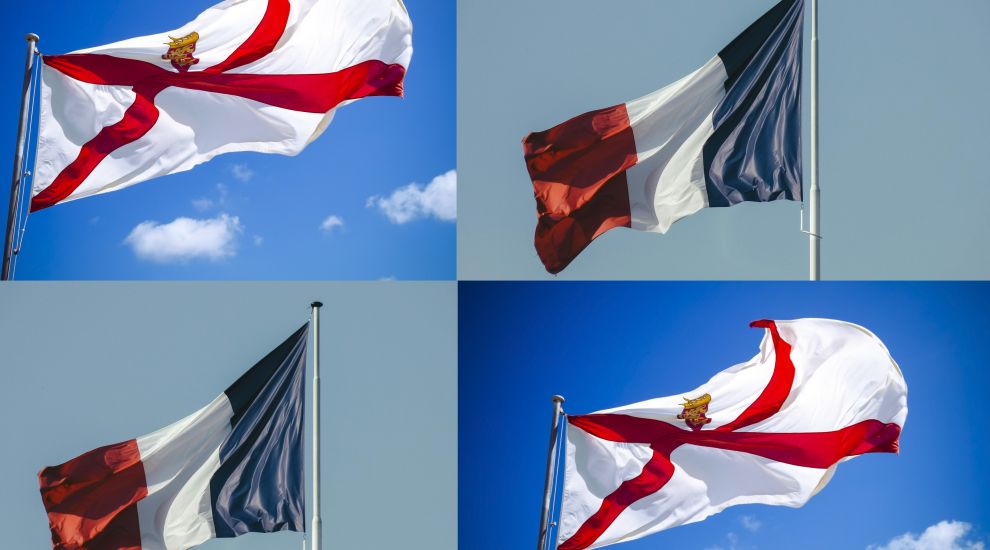

From street signs, to names such as Renouf, De La Haye, and Le Feuvre and elements of Jersey customary law, Jersey still bears many hallmarks of its French heritage, which dates back more than 1,000 years... But, ask the average islander in the street, and would they tell you they really ‘feel’ close to France?
Changing that for the benefit of the island’s economic and cultural good was an early priority of the last government, and remains so under the current one.
With the Olympics taking place just across the water in Paris this month, and as the island’s ‘French Season’ reaches its conclusion, the Connect team reflected on the most recent efforts to deepen Jersey’s ties…
Following the 2022 election, Economic Development Minister Kirsten Morel, who made the ‘French connection’ a key Ministerial priority, wasted little time before making a trip to France to investigate key transport hubs in Brittany, meeting representatives from Rennes’ high-speed rail hub and new business quarter, Euro-Rennes, Rennes Airport, and Saint Malo port.
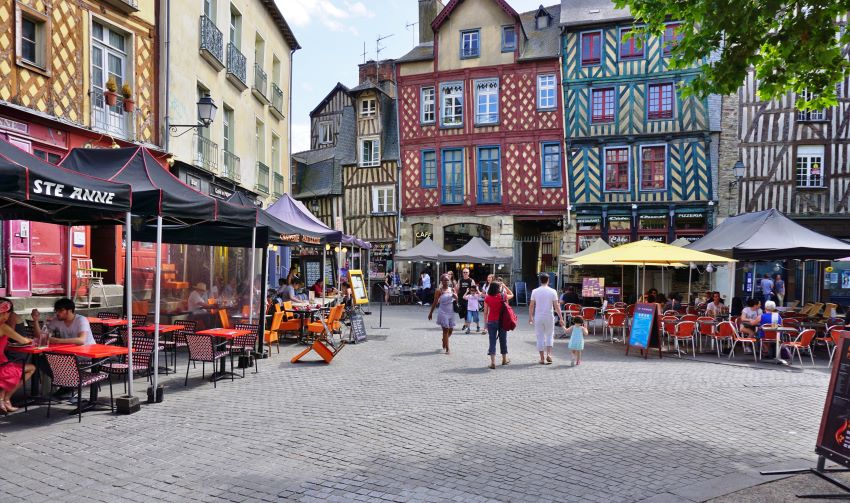
Pictured: Blue Islands launched a twice-weekly service to Rennes in 2022.
“What I found particularly interesting on this fact-finding visit was to discuss the potential that we have on our doorstep for regular passenger and air freight flights between Rennes and Jersey, and enhanced freight links to Europe via the port of Saint Malo,” Deputy Morel said at the time.
“At Saint Malo, I saw how the €155 million investment has transformed the ferry and cruise ship terminals. If Jersey can attract just a fraction of the business which passes through the area, and if island businesses can use the French hubs to reach the rest of Europe, then we will unlock significant opportunities for local businesses.”
That same year, Blue Islands had launched twice-weekly services to Rennes – and around the time of the Minister’s visit in November, he explained how he and Rennes Airport would like to see it become a year-round service to increase tourism and economic activity between the two jurisdictions, and get the island better connected to other European locations.
“So now it is a case of going to Blue Islands and seeing if it is something they can help with – if they can’t I will also speak to other air operators,” he said, noting that government funding may be required to bring the concept to fruition.
Blue Islands opted to bring back the link between June and September 2023, but the route was not re-added to schedules for 2024.
What we did say ‘rebonjour’ to, however, was discussions that first took place many moons ago over a possible fixed link to France in the form of a tunnel, which politicians over the water had previously given a most creative, if mythical, nickname…
In March, 'tunnel-visionaries' went on a tour of the Channel Islands to woo politicians and industry leaders, insisting that a fixed rail link is eminently possible and can be done commercially.
Deputy Morel explained he had also raised the matter “informally” with the President of La Manche, as well as MPs and representatives of the National Assembly in Paris.
Such a project, it was argued, would help solve some of the biggest challenges facing island communities, including providing a workforce to care for the ageing population, cheaper housing options, and bolstering freight resilience and diversity of goods available.
Even without a tunnel, in recent years some inroads have been made on the latter.
It was in 2021 that Coop first started stocking everything from fresh produce to dairy products, frozen foods, household essentials and personal care items from Carrefour.
In July 2023, the range was expanded substantially to include products from the popular Bio brand, an organic range where 80% of products are packaged in France and all palm oil-free.
The Coop’s Head of Trading Retail Operations, Kevin Mowatt, said the extended offer would help “address some of the supply chain issues that the UK has experienced since Brexit”.
“With the increased cost of customs duties and tariffs now applying to products crossing the ‘new border’ and the impact it has had on stock availability, the increased range will give customers across the Channel Islands access to more diverse and affordable groceries,” he explained.
The flow of French groceries into island stores – and potentially Jersey’s own produce into French stores – will only be bolstered by the recent launch of Ship Direct, which, using a modern 23m Chausiaise vessel, will link the island with the Normandy port of Granville.
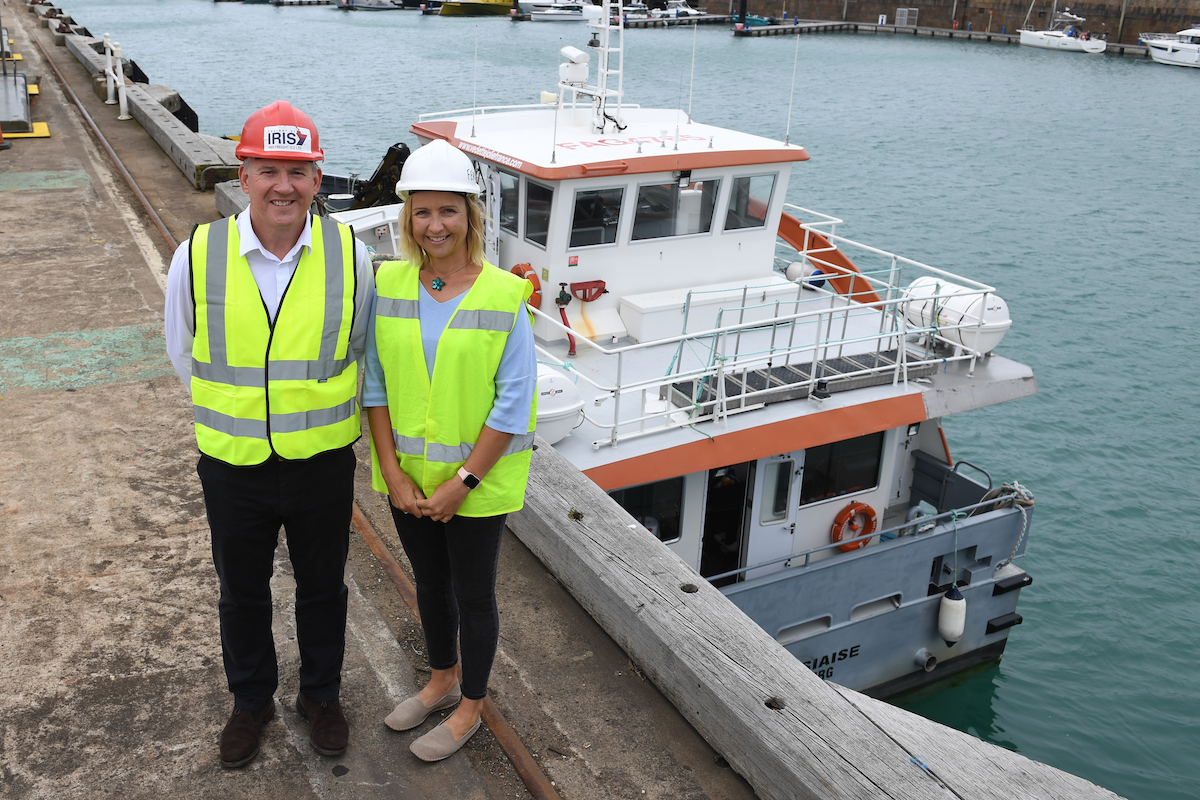
Pictured: Ship Direct recently launched, linking up the island with the Normandy port of Granville.
“At present, some 350,000 tonnes of freight is imported annually into the island and 95% of that arrives on the northern route,” said Andrew Dann. “Granville to Jersey is one-fifth of the distance compared with Portsmouth to Jersey, so expanding freight volumes on the southern route has the bonus of a much lower carbon footprint. “France also offers a greater choice and better value for money, especially when it comes to the supply of building materials, fruit, vegetables, meat and even wine.”
It emerged in June that a French group wished to take things a step further and actually set up a full supermarket on the island.
But the project was hit by malchance, with current requirements in the Bridging Island Plan, which sets planning policy until the end of 2025, meaning the field the supermarket was hoping to build on will not become available until early 2026.
“There are other sites that may be available for them, but if not, it might be a case of waiting for the Island Plan review. They may choose to wait for the site,” Kirsten Morel said.
In the meantime, there’s still the Norman Market to visit – something which has been popping up increasingly frequently, and last month did so to mark ‘French Season’.
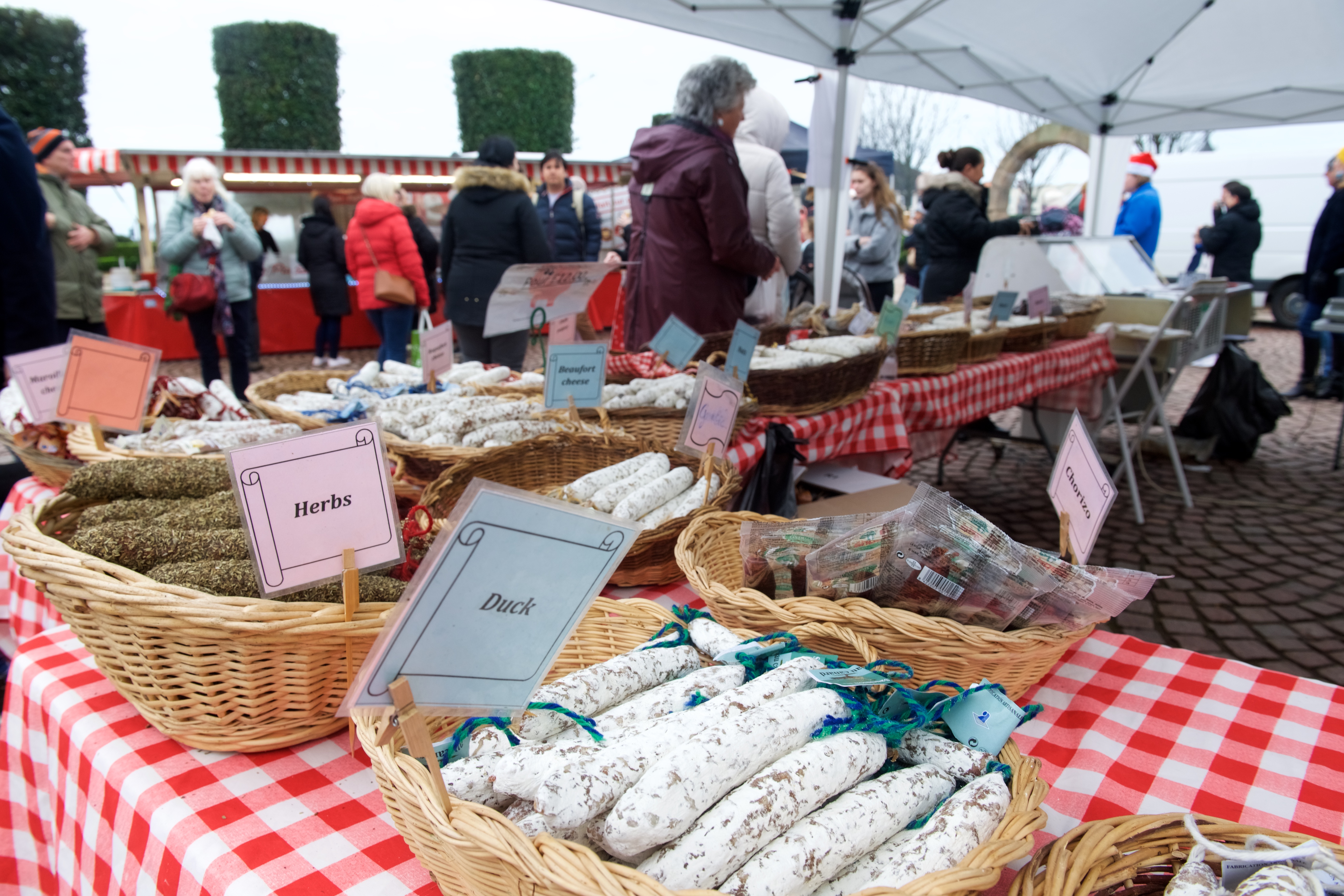
Pictured: The Norman Market is a staple of quality French produce that frequently visits Jersey
It saw cultural institutions from around the island joining forces to bring Jersey a step closer to its neighbour through events, food and music, particularly in the run-up to the 2024 Paris Olympics, and coinciding with Fête de la Musique and Bastille Day.
But in more recent years culture has also been used as a method of bringing our French neighbours closer to us.
As part of cooperation with the Department of Ille-et-Vilaine, the Government of Jersey proposed, supported and coordinated a project combining artistic and linguistic practice. Jersey artist Kiera Melville was selected for a six-week residency with Year 9 pupils from Collège Moka in Saint Malo.
And, as part of the recent political summit with Ille-et-Vilaine and Brittany took place at the Greve de Lecq Barracks, the headquarters of ArtHouse Jersey, and was allied to a successful artistic residency at Greve de Lecq Barracks, a collaboration between Art House Jersey, Guernsey Art House, and Les Ateliers du Vent from Rennes, which is showcased in an exhibition at Capital House.
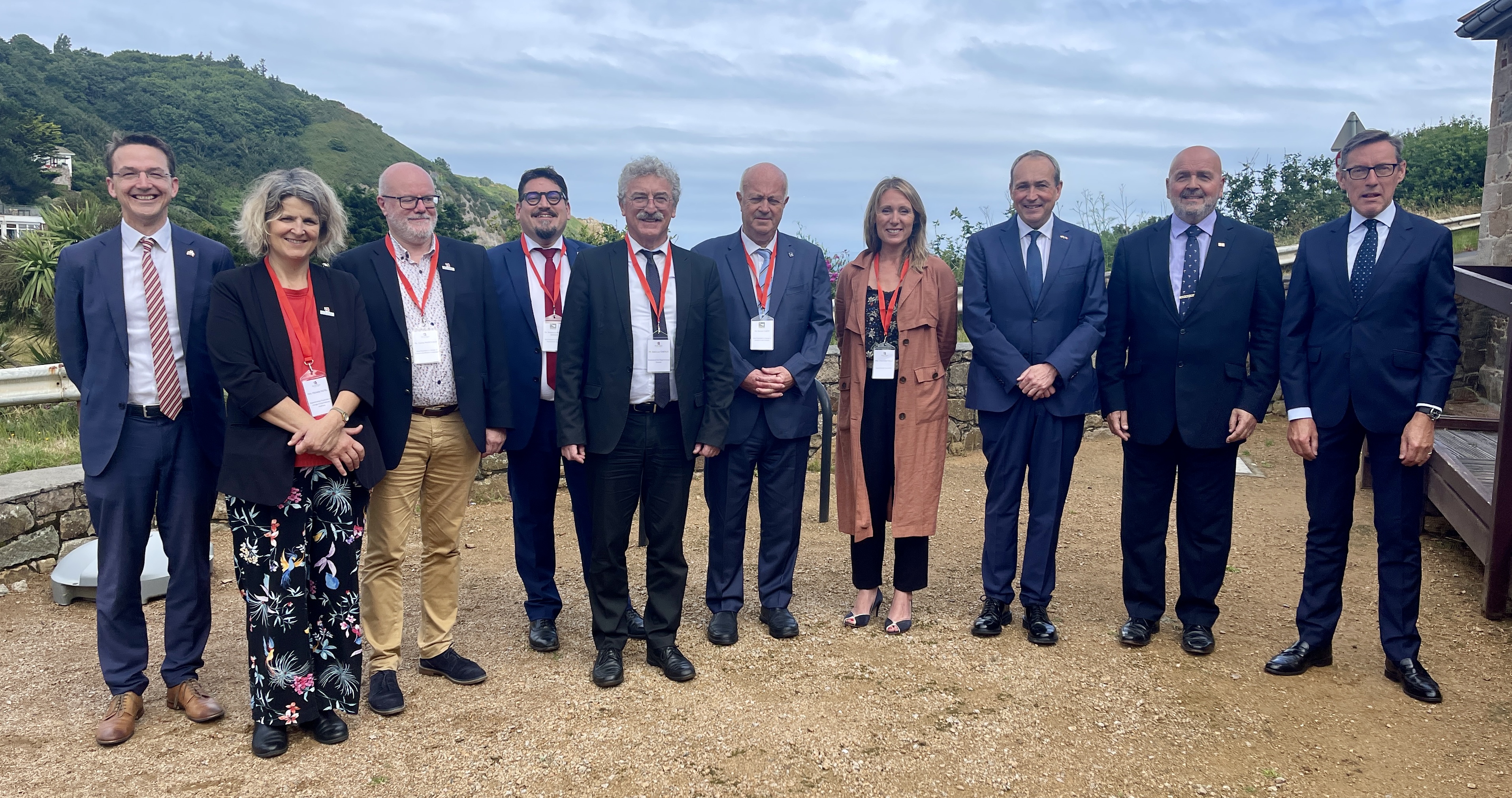
Pictured: The recent political summit took place at the Greve de Lecq barracks.
It was during that same visit that Jersey and France signed an important Memorandum of Understanding that marked a formal agreement to work together to create a so-called “green corridor” between Jersey and Saint Malo.

Pictured: Deputy Morel signing the "green corridor" MoU between Jersey and St Malo
Ports' CEO Matt Thomas said he was "pleased to be cooperating with our French neighbours to establish a zero-emission shipping route between Jersey and Saint Malo".
“We are already working with airlines and ferry companies to help them decarbonise, and we will ensure that the redevelopment of Elizabeth Harbour provides the infrastructure needed by future vessels using renewable or low carbon fuel.”
It followed another maritime initiative launched in April 2023 which served to strengthen relations and bolster tourism.
Following extensive negotiations, it was agreed that French nationals would be able to visit Jersey using only their ID cards for daytrips – a move roundly welcomed by the hospitality sector.
However, the scheme is now under threat after the UK government recently launched the electronic travel authorisation (ETA) scheme, a new requirement for non-visa nationals visiting the country.
While some countries need to apply for this digital permission already, the ETA is due to be rolled out to the rest of the world, including EU countries, later this year – and applicants will need a valid biometric passport to travel to the Common Travel Area, which includes Jersey.
Customs officials explained that French ID cards would fall outside the biometric requirements.
Last week, it was confirmed that the scheme would be extended until September 2025 – but it's long-term future remains in peril.
"I'm pleased to be able to extend the scheme for another year and so benefit the local tourist industry. Whilst the introduction of the ETA scheme makes further extension potentially problematic it will increase the security of the CTA and consequently our island's borders," Home Affairs Minister Mary Le Hegarat said.
Despite these difficulties, there was a recent breakthrough relating to the flow of people in the other direction.
A Memorandum of Understanding was last month signed between Jersey and Rennes Business School (RBS), which was ranked in a recent FT ‘top 100’ list.
Alongside the Unviersity of Caen, which Jersey already had an established link to, the university appeared at Jersey’s most recent higher education fair.
The agreement is expected to lead to greater opportunities for executive business education for those already in business, and to support students who would like to study RBS’ undergraduate degrees taught in English.
Deputy Morel, who signed the MoU alongside the Rennes Business School Dean and General Director, Adilson Bourgs said: “I am confident that this MoU will both strengthen our links with France and enable our business community to access training, which should help them to operate more productively and profitably.”
While this new option allows for English study, the island is still doing its part to promote the take-up of French language among young people in the curriculum, while organisations like the Alliance Française also play an important role.
Its Ecole FLAM (Français Langue Maternelle) in Jersey enables French and binational children to practice their language and stay in contact with French culture.
The importance of linguistic exchange – and easy travel – was emphasised by French Ambassador Hélène Duchêne as she travelled to Jersey for the first time since she was a teenager in June in a trip that saw her meet Ministers, the Bailiff, and enjoy a special Jersey-French menu whipped up by Pêtchi owner Joe Baker.
"We have the feeling that if you want good relations between two countries, between societies, they have to greet each other," she said.
But language-teaching is but one fragment of the AF’s day-to-day.
John Harris, who has been Chair of the Alliance Française since 2005, explained that the non-profit organisation is "very active in the cultural life of the island" but also works closely with the Government – activity which has only increased since the UK voted to leave the European Union.
"We're an important player in the relationship between France and the island from a cultural and linguistic point of view and also in the way in which we can assist Government with their mission to develop closer relations with France," he continued.
Brexit has itself made it more difficult for AF to operate due to “bureaucratic formalities” that have made it more challenging and costly to employ French nationals.
It's for this reason that AF is asking the government to increase its annual government grant of £10,000, which has not increased for many years.
The role of the French Honorary Consul – the origins of which can be traced back espionage in the time of Victor Hugo – has also become more demanding.
"Fundamentally, a consul is there to look after his own nationals who happen to be in the territory where he has authority. He helps them liaise with their own government in many different ways, such as obtaining passports, ID cards, voting, powers of attorney, matters of pension rights and so on and so forth,” said Christopher Scholefield, who last month handed over the role to Frenchman and Ports of Jersey employee Pierre Chays.
Pictured: Pierre Chays is closely involved with the island's French community and representative organisations.
"But in Jersey,” he added with a smile, “There is a culture, which I rather enjoy – but it does become very time consuming – of people thinking, 'I've got a problem with France, I'll ring the consulate!'
"While that can be time consuming and difficult, it's also a good thing, because I am absolutely convinced that there is everything to be gained and nothing to be lost from Jersey reinforcing its connections with France."
This article first appeared in Connect Magazine – pick up a free copy around the island or read the digital edition in full below...
Comments
Comments on this story express the views of the commentator only, not Bailiwick Publishing. We are unable to guarantee the accuracy of any of those comments.